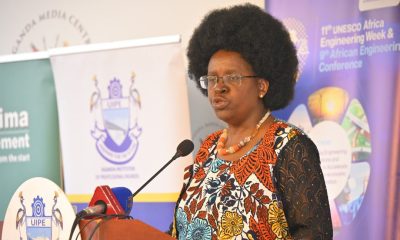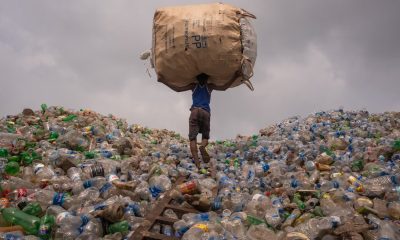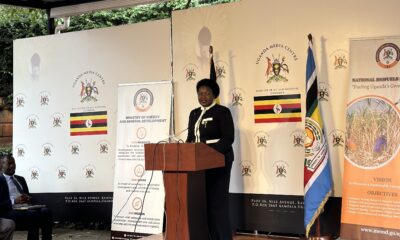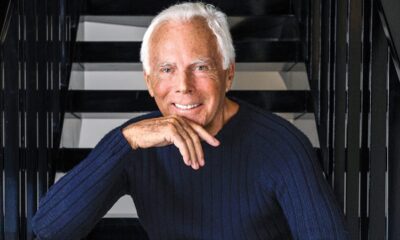News
Biotech pioneers scoop 2018 water prize
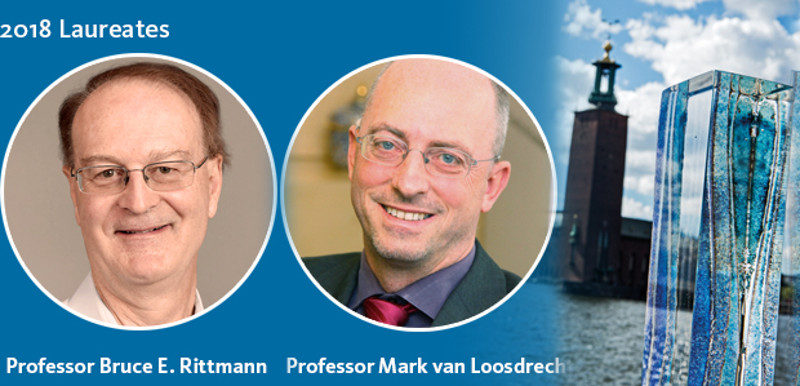
2018 Water Laureates Professors Bruce Rittmann and Mark Van Loosdrecht
The use of biotechnology for improving lives has received another seal of approval – this time from the water sector.
This week, two leading environmental scholars, Professor Bruce Rittmann from the Arizona State University and Professor Mark van Loosdrecht from Delft University of Technology in The Netherlands were named the 2018 Stockholm Water Prize Laureates. The Stockholm Water Prize is the World’s most prestigious award in the Water Industry.
In a statement from the Stockholm International Water Institute (SIWI) the duo was recognized for revolutionizing water and wastewater treatment.
“By revolutionizing microbiological-based technologies in water and wastewater treatment, Professors Mark van Loosdrecht and Bruce Rittmann have demonstrated the possibilities to remove harmful contaminants from water, cut wastewater treatment costs, reduce energy consumption, and even recover chemicals and nutrients for recycling,” said the statement, adding that:
“Their pioneering research and innovations have led to a new generation of energy-efficient water treatment processes that can effectively extract nutrients and other chemicals – both valuable and harmful – from wastewater.”
On receiving news of the prize, Professor van Loosdrecht said: “I’m very excited and pleased! This is a recognition not just of our work but of the contributions microbiological engineering can make to the water sector.”
In its citation, the Stockholm Water Prize Nominating Committee recognizes Professors Rittmann and Van Loosdrecht for “pioneering and leading the development of environmental biotechnology-based processes for water and wastewater treatment. They have revolutionized treatment of water for safe drinking, and refined purification of polluted water for release or reuse – all while minimizing the energy footprint”.
The professors’ research has led to new processes for wastewater treatment currently being used around the globe. “Traditionally, we have just thought of pollutants as something to get rid of, but now we’re beginning to see them as potential resources that are just in the wrong place,” says Professor Rittmann. In his research he has studied how microorganisms can transform organic pollutants to something of value to humans and the environment. “We’re in the middle of a paradigm shift, with more and more focus on how we can create resources, using microbial systems,” he says.
Professor van Loosdrecht’s work echoes this sentiment. His research has led to increasingly common wastewater treatment processes that are less costly and more energy efficient than traditional methods.
“With current technology, you can already be energy neutral and there is a lot of research on how to become energy positive. Especially in developing countries with unstable electricity supply and limited access to funding, this is very important. If we could build a wastewater plant that is self-sufficient in energy, that would make sewage plants feasible in many more places,” says Mark van Loosdrecht.
“Together, Professors Rittmann and van Loosdrecht are leading, illuminating and demonstrating the path forward in one of the most challenging human enterprises on this planet – that of providing clean and safe water for humans, industry, and ecosystems,” says SIWI’s Executive Director Torgny Holmgren.
H.R.H. Crown Princess Victoria of Sweden will present the prize to Professors Rittmann and van Loosdrecht on behalf of H.M. King Carl XVI Gustaf of Sweden, Patron of Stockholm Water Prize, at a royal award ceremony on 29 August, during World Water Week in Stockholm.
The latest award is the latest recognition yet of the importance of the science of biotechnology in improving lives across the broad spectrum of fields.
Biotechnology is increasingly considered as the solution to solving diseases and conditions of ill health among humans, animals and livestock. In Uganda for example, Biotechnology is used in a wide range of vaccines, drugs including all the anti-retroviral therapies taken by HIV/AIDS patients.
Although Biotechnology has been shown to have equally useful attributes in the agricultural sector such as in addressing pests and environmental stresses, the technology still faces a lot of opposition.
Some analysts have argued that opposition to agricultural biotechnology is partly fuelled by ago-chemical multinational industry that relies heavily on selling pesticides.
Comments



